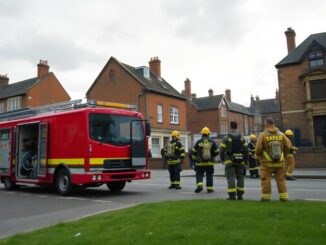Examining the alarming rise in threats against Iranian journalists and the call for action from the international community.

Topics covered
The landscape for journalism in Iran is becoming increasingly perilous. While recent geopolitical events may have shifted some attention away from the Iranian regime’s oppressive tactics, the reality remains stark: journalists in Iran face a multitude of threats every single day.
How do we balance the crucial need for a free press with the very real dangers that reporters confront in their pursuit of truth? This article dives deep into the current state of journalism in Iran, the rising threats against reporters, and the international response that is urgently needed.
The numbers tell a troubling story
In recent years, we’ve seen a disturbing rise in violence against journalists and media workers in Iran. Reports show that the number of documented threats, arbitrary arrests, and instances of censorship has surged.
According to the Committee to Protect Journalists (CPJ), Iran remains one of the world’s leading jailers of journalists, with over 30 reporters imprisoned as of late 2025.
This data paints a stark picture: journalists aren’t just facing harassment; they are risking their lives to bring us the truth. The implications are far-reaching—when the press is silenced, power can go unchecked, and the public is deprived of critical information. Anyone who’s ever launched a product knows that the churn rate of trust can be devastating; once lost, it can take years to rebuild.
Case studies of resilience and repression
Take the case of Jamal Abdi, a journalist arrested during a peaceful protest against government censorship. His story exemplifies the risks faced by those daring to report on the realities of life in Iran. After months behind bars, Abdi was released, but the psychological scars and the impact on his family remain profound. Such cases remind us that the fight for press freedom comes with significant dangers.
On the flip side, we have stories of journalists who have navigated these treacherous waters successfully. Several Iranian journalists in exile have created thriving platforms that report on Iranian affairs from abroad. They showcase the resilience of the human spirit while highlighting the stark contrast between their safety and the plight of their colleagues back home. This disparity underscores the critical need for international solidarity and support for those still operating under oppressive regimes.
Lessons for aspiring journalists and advocates
So, what can we take away from the current crisis surrounding journalism in Iran? First and foremost, awareness is crucial. It’s imperative for the international community—be it other journalists, advocates, or policymakers—to recognize the dangers that Iranian journalists face and to take action. Lobbying for journalist protection, advocating for freedom of expression, and holding governments accountable are vital steps in supporting those on the front lines of this struggle.
Moreover, aspiring journalists must understand the landscape they’re entering. Building a career in journalism, especially in volatile regions, requires more than just passion; it necessitates a robust strategy for safety and resilience. This means grasping the legal frameworks, building support networks, and being prepared for potential risks.
Actionable takeaways
If you’re looking to make a difference in the world of journalism, consider these actions:
- Engage with organizations that support press freedom, like the Committee to Protect Journalists or Reporters Without Borders.
- Participate in campaigns that raise awareness about the threats facing journalists in Iran and beyond.
- Foster dialogue about the importance of a free and independent press in educational settings.
- Support and amplify the voices of exiled journalists who continue to report on issues affecting their homeland.
In conclusion, the plight of journalists in Iran is a rallying cry for all who value a free press. By understanding the risks involved and supporting those who confront them, we can contribute to a more informed and just world.




